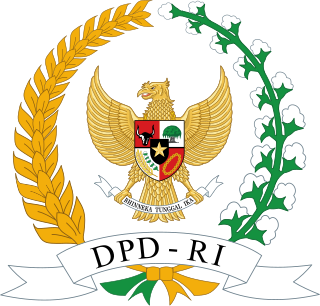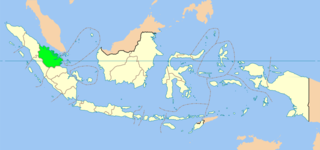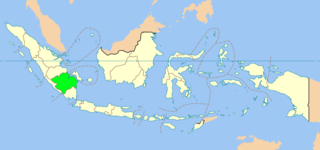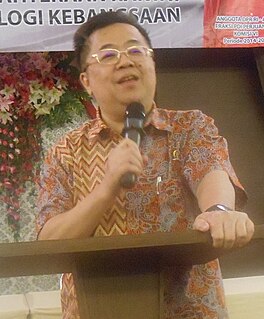| ||||||||||||||||||||||||||||||||||||||||||||||||||||||||||||||||||||||||||||||||||||||||||||||||||||||||||||
All 678 seats to the People's Consultative Assembly (People's Representative Council: 550; Regional Representative Council: 128) | ||||||||||||||||||||||||||||||||||||||||||||||||||||||||||||||||||||||||||||||||||||||||||||||||||||||||||||
|---|---|---|---|---|---|---|---|---|---|---|---|---|---|---|---|---|---|---|---|---|---|---|---|---|---|---|---|---|---|---|---|---|---|---|---|---|---|---|---|---|---|---|---|---|---|---|---|---|---|---|---|---|---|---|---|---|---|---|---|---|---|---|---|---|---|---|---|---|---|---|---|---|---|---|---|---|---|---|---|---|---|---|---|---|---|---|---|---|---|---|---|---|---|---|---|---|---|---|---|---|---|---|---|---|---|---|---|---|
| ||||||||||||||||||||||||||||||||||||||||||||||||||||||||||||||||||||||||||||||||||||||||||||||||||||||||||||
| ||||||||||||||||||||||||||||||||||||||||||||||||||||||||||||||||||||||||||||||||||||||||||||||||||||||||||||
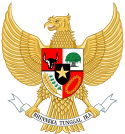 |
|---|
| This article is part of a series on the politics and government of Indonesia |
| Pancasila(national philosophy) |
| Constitution |
Executive |
|
| Foreign relations |
Indonesia held legislative elections on 5 April 2004 for both houses of the People's Consultative Assembly, the country's national legislature. This included all 550 seats in the People's Representative Council and 128 seats of the new Regional Representative Council.

Indonesia, officially the Republic of Indonesia, is a country in Southeast Asia, between the Indian and Pacific oceans. It is the world's largest island country, with more than seventeen thousand islands, and at 1,904,569 square kilometres, the 14th largest by land area and the 7th largest in combined sea and land area. With over 261 million people, it is the world's 4th most populous country as well as the most populous Muslim-majority country. Java, the world's most populous island, is home to more than half of the country's population.

The People's Consultative Assembly of the Republic of Indonesia is the legislative branch in Indonesia's political system. It is composed of the members of the People's Representative Council (DPR) and the Regional Representative Council (DPD). Before 2004, and the amendments to the 1945 Constitution, the MPR was the highest governing body in Indonesia.
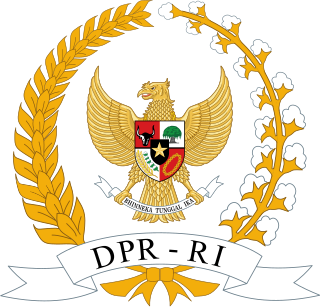
The People's Representative Council, alternatively translatable as the House of Representatives or as the House of People's Representatives, is one of two elected national legislative assemblies in Indonesia.
Final results of the popular vote tally showed that Golkar, the former ruling party of the New Order era, received the largest number of votes. It had lost to the Indonesian Democratic Party – Struggle in the 1999 legislative election. The Democratic Party and the Prosperous Justice Party, two of the newest parties to participate in the elections, received a combined 14.8 percent of the popular vote.

The Golkar Party or Party of Functional Groups is a political party in Indonesia. It was founded as Sekber Golkar in 1964, and participated for the first time in 1971 as Golkar. At this point, Golkar was not a political party. In 1999, forced by the new election law, the groups reformed itself as a political party.
The New Order is the term coined by the second Indonesian President Suharto to characterise his regime as he came to power in 1966. Suharto used this term to contrast his rule with that of his predecessor, Sukarno. The term "New Order" in more recent times has become synonymous with the Suharto years (1966–1998).
Based on the final allocation of seats in the People's Representative Council, Golkar, the Indonesian Democratic Party – Struggle, the National Awakening Party, the United Development Party, the Democratic Party, the Prosperous Justice Party, and the National Mandate Party were qualified to submit candidates for the country's first direct presidential election later in the year.
The National Awakening Party, frequently abbreviated to PKB, is an Islam-based political party in Indonesia.

The United Development Party is an Islam-based political party in Indonesia. Due to its distinctive logo, the party is nicknamed "Kaaba Party".

The National Mandate Party, frequently abbreviated to PAN, is an Islam-based political party in Indonesia.
The election has been described as the most complicated election in the history of democracy. [1] [2]

Democracy is a system of government where the citizens exercise power by voting. In a direct democracy, the citizens as a whole form a governing body and vote directly on each issue. In a representative democracy the citizens elect representatives from among themselves. These representatives meet to form a governing body, such as a legislature. In a constitutional democracy the powers of the majority are exercised within the framework of a representative democracy, but the constitution limits the majority and protects the minority, usually through the enjoyment by all of certain individual rights, e.g. freedom of speech, or freedom of association. "Rule of the majority" is sometimes referred to as democracy. Democracy is a system of processing conflicts in which outcomes depend on what participants do, but no single force controls what occurs and its outcomes.






